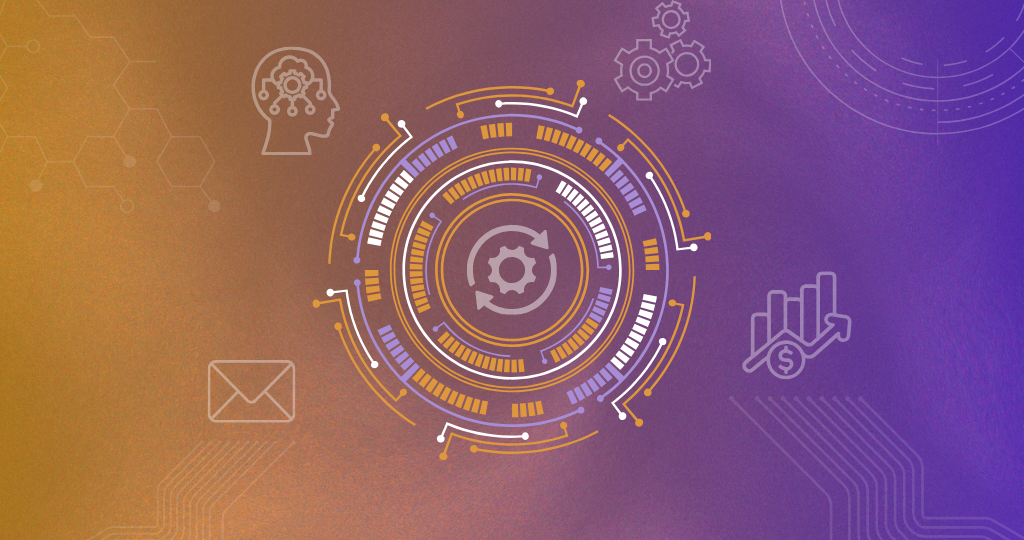Best Practices for Data Management and Compliance in the Age of AI
Data is one of the most valuable assets for modern businesses, but managing it responsibly—especially in the age of AI—is more challenging than ever. With AI and CRM platforms automating data collection and processing, businesses face new responsibilities around data privacy and regulatory compliance. CEOs, data managers, and compliance officers must implement best practices to ensure data is secure, accurate, and compliant with regulations like GDPR, CCPA, and HIPAA. In this article, we’ll cover essential data management and compliance practices to help businesses use AI responsibly while building trust with their customers.
The Importance of Data Management and Compliance in an AI-Driven World
AI offers powerful capabilities for data analysis and automation, but these benefits come with significant compliance challenges. Poor data practices can lead to security breaches, financial penalties, and reputational damage. Prioritising data management and compliance ensures businesses can leverage AI and CRM platforms effectively while respecting customer privacy.
-
Increased Data Volume and Complexity
With AI-driven CRMs and analytics platforms, companies now handle larger volumes of data from multiple sources. This increase in data requires more robust data management and security measures. -
Growing Privacy Regulations
Global regulations such as GDPR in Europe, CCPA in California, and PIPEDA in Canada enforce strict rules around data collection, storage, and usage. Non-compliance can result in heavy fines and damage to a company’s reputation. -
Customer Trust and Data Ethics
Customers are increasingly aware of how their data is used, and respecting their privacy is essential for maintaining trust. Companies that prioritise ethical data practices are more likely to build strong customer relationships and loyalty.
Key Takeaway for Business Leaders
Ensuring data management and compliance in an AI-driven environment is essential for protecting customer privacy, minimising risks, and enabling responsible, trustworthy AI applications.
Best Practices for Data Management with AI and CRM Platforms
When integrating AI and CRM solutions, establishing data management best practices is critical. These practices cover data collection, storage, usage, and security.
1. Implement Data Governance Policies
A solid data governance framework defines roles, responsibilities, and guidelines for handling data. Effective governance ensures that data is consistently accurate, secure, and compliant with regulations.
-
Data Stewardship
Assign data stewards within your organisation to oversee data quality, integrity, and security. They act as gatekeepers, ensuring that data handling meets compliance standards. -
Data Ownership and Access Control
Clearly define who has access to data, and implement strict controls to prevent unauthorised access. Role-based access control (RBAC) ensures that sensitive data is only accessible to those who need it.
2. Regularly Audit and Clean Data
Data quality is essential for accurate AI outputs. Implement regular audits to ensure data accuracy and identify inconsistencies. Routine data cleaning also prevents duplicate or outdated information from impacting customer interactions.
-
Data Audits
Schedule regular data audits to assess data accuracy, completeness, and compliance. Audits can identify discrepancies and improve data quality across AI and CRM platforms. -
Data Cleaning Automation
Use AI tools to automate data cleaning processes, such as deduplication, validation, and normalisation. Clean data enhances CRM performance and leads to more accurate AI-driven insights.
3. Encrypt Sensitive Data for Security
Encryption is a vital security measure for protecting sensitive customer data. By encrypting data at rest (stored data) and in transit (data being transferred), companies can safeguard information from unauthorised access or breaches.
-
End-to-End Encryption
Encrypt data across all stages, from collection to storage. End-to-end encryption prevents unauthorised parties from accessing data, even in the event of a breach. -
AI-Enhanced Security Solutions
Use AI-driven security solutions to detect and respond to potential threats in real time. AI can analyse patterns and detect anomalies that indicate potential security risks, allowing businesses to act quickly.
Ensuring Privacy Compliance When Using AI
Adhering to privacy regulations is crucial, especially when AI is involved in data processing. Privacy laws set standards for how data should be collected, stored, and used, and non-compliance can lead to severe consequences.
1. Implement Privacy-by-Design in AI Systems
Privacy-by-design incorporates privacy considerations into every stage of the data processing lifecycle. This approach ensures that data protection is an integral part of your AI systems, not an afterthought.
-
Data Minimisation
Only collect the data necessary for AI functionality. Limiting data collection reduces risk and ensures compliance with data minimisation requirements under regulations like GDPR. -
Anonymisation and Pseudonymisation
Anonymise or pseudonymise data to protect customer identities. These techniques prevent data from being linked back to individuals, helping to meet privacy standards and reduce liability.
2. Ensure Transparency in Data Use
Transparency is essential for building trust and maintaining compliance. Clearly communicate to customers how their data is collected, stored, and used. AI-driven CRMs should include transparency features, such as consent management and data use notifications.
-
Consent Management
Implement consent mechanisms that allow customers to control how their data is used. These tools can collect and store consent records, providing a clear audit trail for compliance. -
Data Use Policies
Publish data use policies that explain data collection practices and AI applications. These policies should be accessible and written in clear language to foster transparency and customer understanding.
3. Monitor and Review Compliance Regularly
Privacy laws and AI technologies are constantly evolving, making it essential to regularly review and update compliance measures. Regular monitoring ensures that AI systems continue to meet legal requirements.
-
Compliance Audits
Conduct routine compliance audits to ensure that AI and CRM systems adhere to current privacy laws. These audits help identify areas for improvement and keep your data practices up-to-date. -
Automated Compliance Tools
Use AI-driven compliance tools to monitor data usage and detect any potential violations. Automated tools streamline compliance management, helping businesses meet evolving regulatory requirements more efficiently.
Leveraging AI for Data Management and Security
AI can also play a role in data management and security, helping businesses ensure compliance through automation and advanced analytics.
1. Use AI for Data Monitoring and Threat Detection
AI tools can monitor data usage across systems and detect suspicious activity. With AI’s ability to process vast amounts of data, these tools can identify anomalies that human analysts may miss.
-
Automated Threat Detection
AI-driven threat detection systems can recognise unusual behaviour, such as unauthorised access attempts, and send alerts to the security team. This early warning system helps prevent breaches and protects sensitive data. -
Behavioural Analytics
AI can analyse user behaviour patterns to detect and respond to potential threats. For example, sudden changes in user behaviour, like frequent access from unusual locations, may indicate a security risk.
2. Use Machine Learning for Compliance Predictions
Machine learning algorithms can analyse historical compliance data to predict potential risks and suggest preventive measures. By identifying patterns, AI tools can help businesses stay proactive in managing compliance.
-
Compliance Risk Scoring
AI tools can score compliance risks based on historical data, allowing businesses to prioritise high-risk areas. Risk scoring supports better resource allocation for compliance efforts. -
Automated Compliance Reporting
AI-powered reporting tools can automatically generate compliance reports, reducing the time and effort required to prepare for audits. Automated reporting also ensures accuracy and minimises human error.
In an era of AI-powered data insights and customer engagement, maintaining strong data management and compliance practices is essential for sustainable growth and customer trust. By implementing robust data governance, using AI-driven security tools, and staying current with privacy regulations, businesses can leverage the full potential of AI and CRM platforms while respecting customer privacy and minimising risks.
Ready to strengthen your data management and compliance practices? Contact DigiKat for expert guidance on building AI-integrated, compliant systems that protect your business and customer trust.
From the blog


